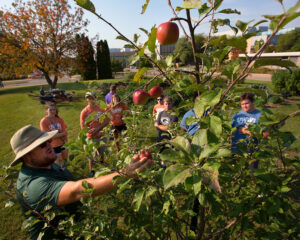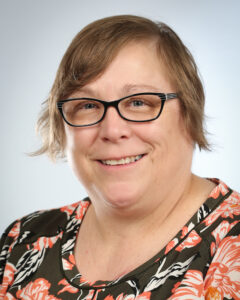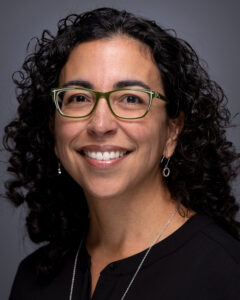MADISON, Wis.—The University of Wisconsin System Board of Regents will honor the recipients of the 16th annual Regents’ Diversity Awards on February 9 in Madison at the next Regents meeting. These awards recognize individuals and programs that foster access and success for students who are members of historically underrepresented populations. Each recipient is awarded $7,500 to support professional development or continue the program being honored.
“We are proud to recognize the profound impact of these individuals and programs in areas of diversity, equity, and inclusion,” said Regent Héctor Colón, who chaired the special Regents’ committee to determine the recipients. “Students, faculty, and staff of all backgrounds are benefiting from their dedication to expanding opportunity and building partnerships.”
Award recipients were selected using the following criteria:
- Sustainable positive impact on equity and diversity, leading to positive institutional change.
- Accountability demonstrated through routine assessment and feedback to promote forward movement on equity and diversity goals.
- Intersections across multiple dimensions of diversity.
- Collaborations with other units, departments, or communities – within the university and beyond.
The 2024 recipients are:
-
Christine Smith, Professor of Psychology, Department of Psychology and Women’s, Gender, and Sexuality Studies, UW-Green Bay.
Dr. Smith has served since 2008 in many capacities that have positively impacted equity and diversity at UW-Green Bay, including co-founding the Pride Center, coordinating Women’s History Month events, chairing the Women’s, Gender, and Sexuality Studies program for six years, and overseeing the creation of the LGBT Certificate. In Fall 2020, she co-created, along with UW-Green Bay student Hanette Kamanda, the program BIPOC R.I.S.E. (Black and Indigenous People of Color Reaching Intersectional Strength through Engagement), a peer mentoring program created to provide Black, Indigenous, Latinx, Asian, and multicultural students with academic, emotional, psychosocial, relational, and professional support. Renamed “New Scholars Rising,” the program recently expanded to include first-generation students. Approximately 50 percent of UW-Green Bay undergraduates are first-generation. Smith has mentored students in over 70 high-impact, independent learning experiences, including internships, research assistantships, independent studies, teaching assistantships, and honors projects; many of the research students have gone on to present at regional and national conferences. -
Provost Glendalí Rodríguez, Vice Chancellor of Academic Affairs, UW-Stout.
Provost Rodríguez has actively contributed to equity, diversity, and inclusion (EDI) efforts during her more than 18 years at UW-Stout in positions ranging from all levels of professorship to department chair of construction to associate provost to provost. She served as secretary and treasurer of the Minority Faculty and Staff Network and created its mentorship aspect to help new faculty and staff connect with the university and local community and advance along their professional trajectory. This network, now known as the Underrepresented Faculty and Staff Alliance, is still active on campus. Rodríguez worked with students to help reestablish the UW-Stout Chapter of Latinos Unidos and served as their faculty advisor for two years; the chapter has since grown to be one of the largest and most active student organizations at UW-Stout. She led the inaugural Comprehensive Academic Planning process for Academic Affairs, resulting in a detailed, five-year academic plan that includes alignment of academic programming with the needs of all students (full-time, part-time, and underrepresented). Her work on this plan was recognized by her peers in the American Association of State Colleges and Universities’ Student Success Institute, which presented her with the Fellows Choice Award in July 2023. -

Sustainability coordinator Wes Enterline, left, conducts a tour of the UW-Whitewater campus produce garden and orchard for learning community students. Students from UW-Whitewater learning communities gave hours of service on September 15, 2017, on campus and in the City of Whitewater. (UW-Whitewater photo/Craig Schreiner)
Campus Garden Program, UW-Whitewater.
Led by UW-Whitewater Sustainability Coordinator Wes Enterline, this program has brought together students, staff, faculty, and community members to support and serve individuals and families of the UW-Whitewater campus and surrounding community for more than a decade. The program’s primary mission is to provide fresh produce to local food pantries, which serve a diverse local population. By addressing food insecurity, the program contributes to the well-being of underrepresented populations, first-generation students, and economically disadvantaged individuals on campus and in the local community. The ongoing donations, totaling over 25,000 pounds of produce to date, and more than 2,500 pounds in 2023 alone, demonstrate the sustainability of the program’s impact. The Campus Garden program was integrated into a UW-Whitewater service-learning class helping participants, who were predominantly underrepresented or first-generation students, understand sustainability principles like composting food waste, propagating and saving seeds, and organic gardening techniques.
Other members of the selection committee included Regent Evan Brenkus, Regent Ashok Rai, and Regent Joan Prince.
The committee also recognizes the important contributions of this year’s other nominees:
- Individual nominees included Dr. Silviana Amethyst, UW-Eau Claire; Dr. Adele Lozano, UW-La Crosse; Dr. Patricia Téllez-Girón, UW-Madison; Dr. David Pate, UW-Milwaukee; Dr. Lynn Goerdt, UW-Superior; and Pamela Nowak-Warren, UW-Whitewater.
- Program nominees included the Art Department, UW-La Crosse; PEOPLE Program, UW-Madison; Roberto Hernandez Center, UW-Milwaukee; Office of Multicultural Student Affairs, UW-Platteville; Center for Excellence in Teaching and Learning, UW-River Falls; and Multicultural Student Services, UW-Stout.
To download high-resolution photos of recipients, click on each thumbnail image.
The Universities of Wisconsin serve more than 162,500 students. Awarding nearly 37,000 degrees annually, the universities are Wisconsin’s talent pipeline, putting graduates in position to increase their earning power, contribute to their communities, and make Wisconsin a better place to live. Nearly 90 percent of in-state Universities of Wisconsin graduates stay in the state five years after earning a degree. The universities provide a 23:1 return on state investment. The Universities of Wisconsin also contribute to the richness of Wisconsin’s culture and economy with groundbreaking research, new companies and patents, and boundless creative intellectual energy.


